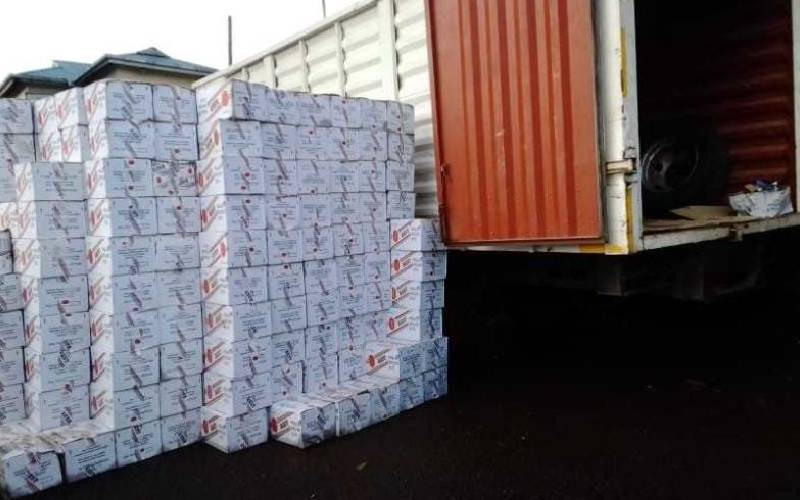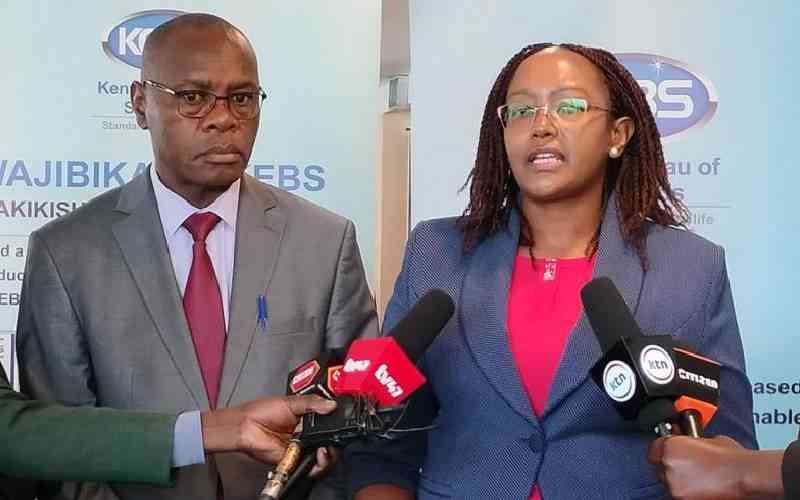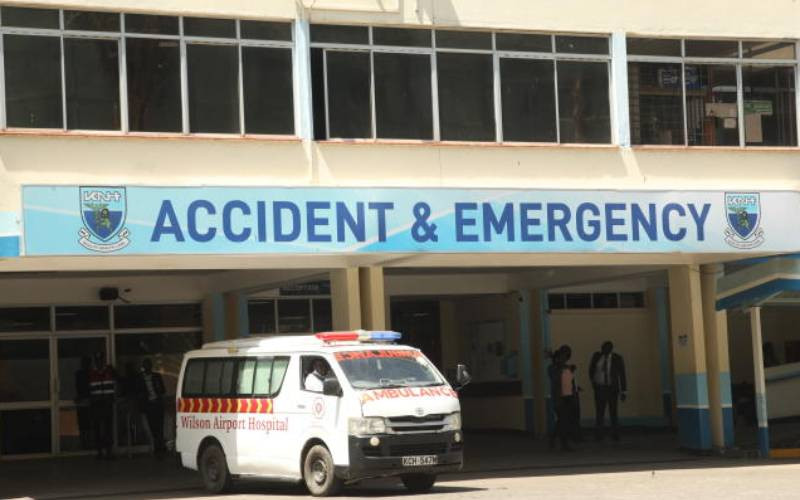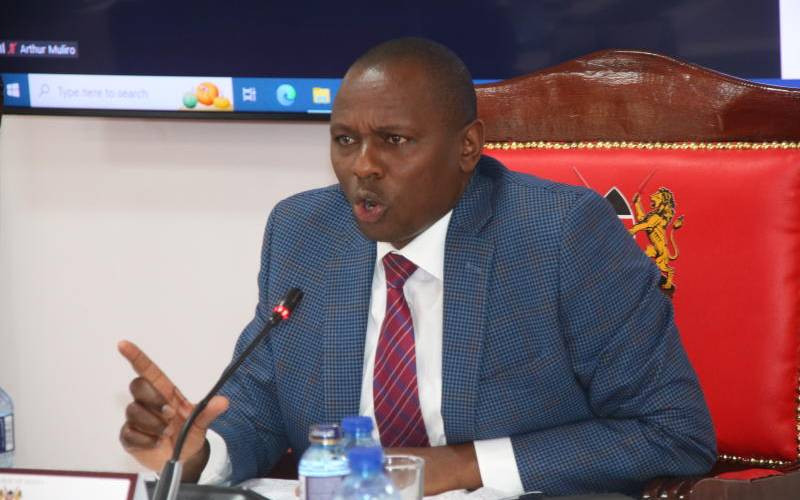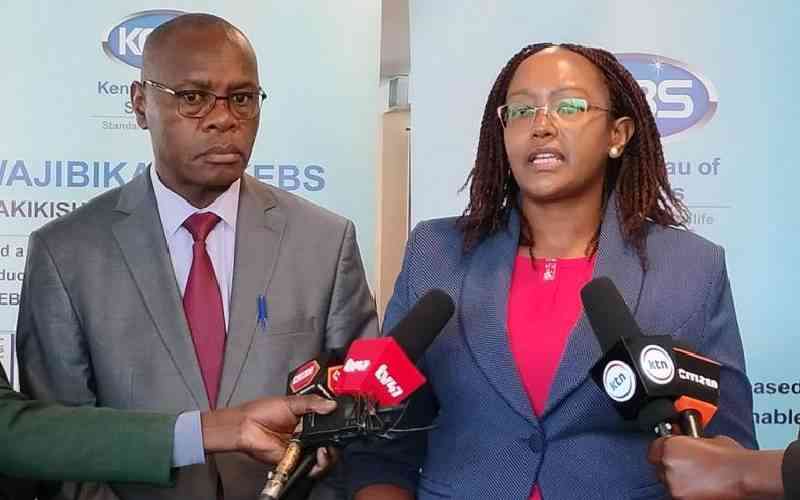
For the first time in history, Kenya has assumed a key leadership role in global food safety governance. The election of Kenya's Dr. Allan Azegele as the 21st Chairperson of the Codex Alimentarius Commission (CAC) marks a transformative moment for the continent. This milestone is not merely symbolic; it signifies Africa's readiness to shape global food safety and trade policies. This milestone is not just about representation—it is about transformation. We are poised to bring its unique flavour to the global food safety table, ensuring that food safety and trade reflect the diverse global realities.
A Global Blueprint for Food Safety
The Codex Alimentarius Commission, often referred to as the "Global food safety handbook," was established in 1963 by FAO and WHO to harmonise food safety and quality standards. These standards protect consumers while facilitating international trade. Codex plays a critical role in ensuring that what we consume—whether locally or internationally—is both safe and fairly traded.
Since joining Codex in 1969, Kenya has been an active contributor to this “global kitchen.” Its involvement has ensured that African perspectives and concerns—such as pesticide residues, food contaminants, and post-harvest losses—are included in the global food policy agenda. Dr. Azegele’s election as Chair signals a new era, where Africa’s priorities will be at the heart of global food discussions.
Kenya's Strategic Leadership in Global Food Safety
Kenya has demonstrated strategic leadership in Codex through proactive engagement and consistent participation. The Kenya Bureau of Standards (KEBS), as the national Codex Contact Point, has been central to driving Kenya's influence in global food safety. By chairing regional committees and contributing to global discussions, Kenya has built a strong reputation in developing science-based food safety standards that support both consumer protection and fair trade.
Africa's Opportunity to Shape Global Standards
Africa's diverse agricultural landscapes and emerging food systems necessitate global standards that accommodate both traditional practices and innovative solutions. This leadership presents a strategic opportunity to champion policies that address climate change impacts on food production, promote sustainable agricultural practices, and harmonize regional food safety regulations.
Moreover, this leadership role can galvanize collective action among African nations, fostering a unified voice in global forums. Enhanced regional collaboration can drive the development of robust, science-based standards that support intra-African trade and global market integration.
Addressing Challenges Through Strategic Policy Interventions
Despite this significant achievement, challenges persist. Limited financial resources hinder many African countries' participation in Codex activities, and there remains a need to strengthen technical expertise in specialized areas of food safety. Aligning national regulations with Codex standards is often constrained by diverse national priorities and resource limitations.
To overcome these barriers, it is imperative to prioritize capacity-building initiatives, mobilize resources, and strengthen institutional frameworks. Regional cooperation must be deepened to ensure collective advancement in food safety governance. Furthermore, aligning food safety standards with the African Continental Free Trade Area (AfCFTA) can unlock new opportunities for trade and economic growth.
A Call for Strengthened Policy Commitment
Africa's leadership in global food safety governance underscores the need for proactive policy engagement. Policymakers must invest in modernizing food safety infrastructure, enhancing regulatory frameworks, and fostering innovation in food systems. International partnerships should be leveraged to support scientific research and technological advancements tailored to Africa's unique needs.
For Kenya, this is a defining moment to reinforce its commitment to global standards and position itself as a benchmark for food safety excellence. KEBS will continue to lead in advancing science-based standards, strengthening national systems, and supporting regional collaboration to drive Africa's food safety agenda.
A Global Call to Action
Africa's growing influence in global food governance is a call to action for governments, industry stakeholders, and consumers to support inclusive, science-driven policies that safeguard health and promote fair trade. For Africa, this is an opportunity to solidify its leadership role in shaping resilient, sustainable food systems. For the world, it is a reminder that inclusive and collective action is essential for a safer, more sustainable global food supply.
As we celebrate this milestone, let us commit to advancing food safety policies that build trust, promote equitable trade, and safeguard future generations.
- Esther Ngari is the Managing Director at the Kenya Bureau of Standards
 The Standard Group Plc is a multi-media organization with investments in media platforms spanning newspaper print
operations, television, radio broadcasting, digital and online services. The Standard Group is recognized as a
leading multi-media house in Kenya with a key influence in matters of national and international interest.
The Standard Group Plc is a multi-media organization with investments in media platforms spanning newspaper print
operations, television, radio broadcasting, digital and online services. The Standard Group is recognized as a
leading multi-media house in Kenya with a key influence in matters of national and international interest.

